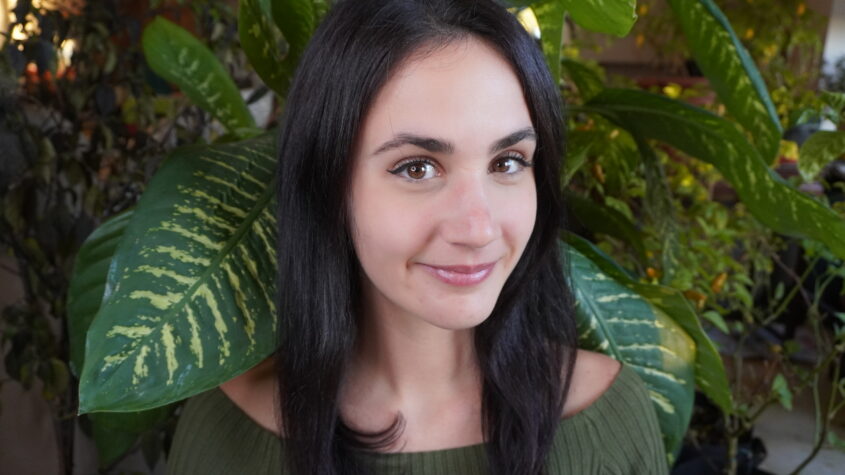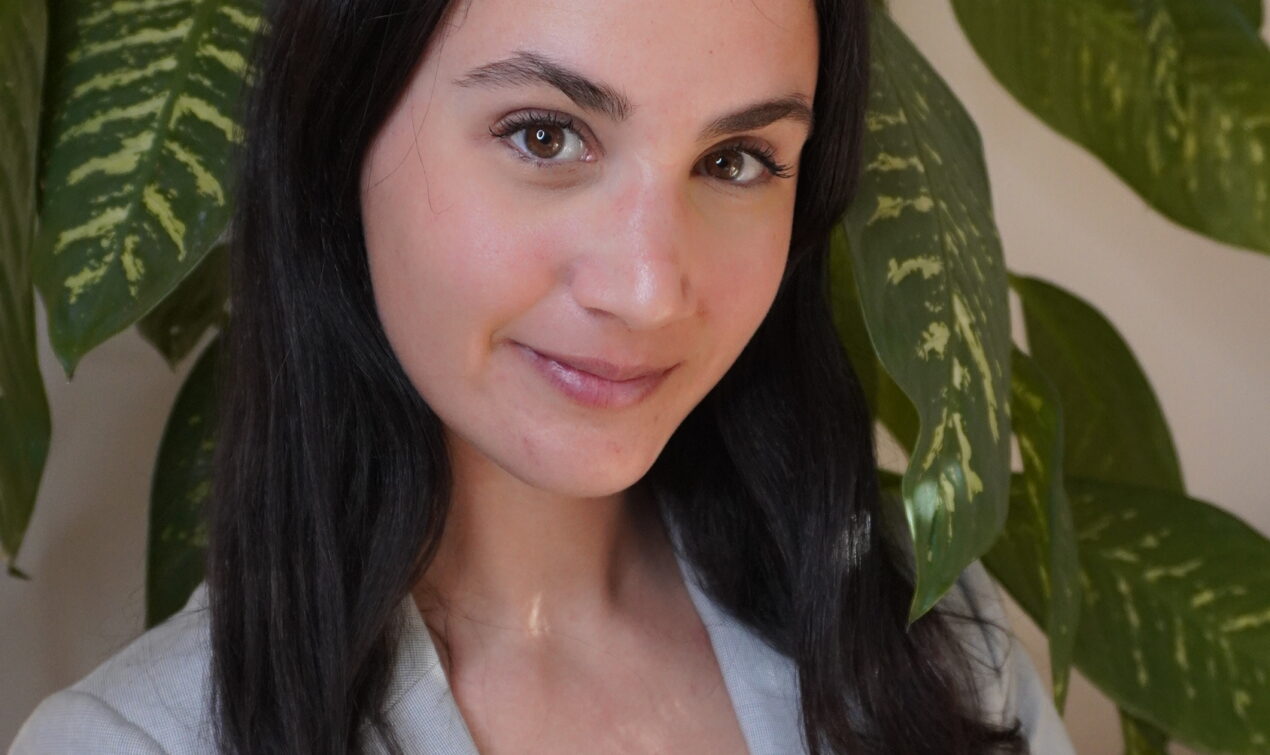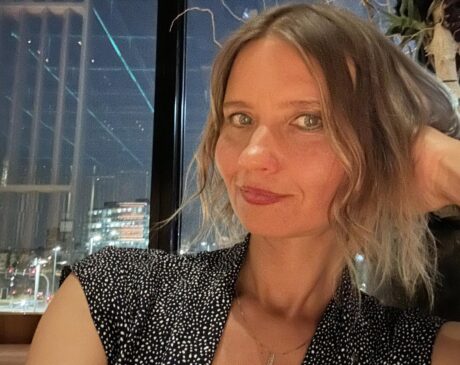Dr. Elena, Nutritionist & Biologist, Reveals the Truth About Plant-Based Diet

More and more people are embracing plant-based nutrition, driven by ethical, environmental, and health-related motivations. But how can one adopt a plant-based diet in a balanced and sustainable way? And what are the real health benefits?
To answer these questions, we spoke with Dr. Elena, a nutritionist and biologist who has been vegan for over 11 years. She shared her journey, the most common challenges people face when transitioning to a plant-based diet, and practical advice to make it accessible to everyone.
With a scientific yet practical approach, Dr. Elena debunks the most common myths surrounding veganism and offers valuable tips on how to enhance well-being through proper nutrition.
Let’s explore her insights, her strategies, and even a special recipe for those who want to try a delicious and nutritious plant-based meal!
Plant-Based Diet Interview with Dr. Elena – Nutritionist and Biologist
1. Nice to meet you Dr. Elena. Could you introduce yourself to our readers?
Hello everybody! My name is Elena, and I am a nutritionist and biologist. I have been vegan for 11 years. I’ve always had a deep passion for science, especially the field of nutrition, which led me to pursue a degree in biology and later specialize in nutrition.
Over time, I became increasingly aware of the ethical, environmental, and health aspects associated with a plant-based diet. This awareness has profoundly influenced both my personal life and my professional practice as a nutritionist.

2. What motivated you to focus on plant-based nutrition in your professional practice?
My choice to specialize in plant-based nutrition primarily stems from ethical reasons. I firmly believe in the importance of reducing animal suffering and respecting the environment.
From a health perspective, plant-based nutrition offers numerous benefits in preventing and managing various chronic diseases. Additionally, I see a plant-based approach as a concrete response to the environmental challenges we are facing today.
3. Based on your experience, what are the main benefits your patients notice when transitioning to a predominantly plant-based diet?
Many of my patients experience increased energy levels, improved digestion, and better sleep quality. Additionally, they often report reduced inflammation and better weight management.
A diet rich in plant-based foods also tends to improve lipid profiles and overall cardiovascular health. It’s not uncommon for some patients to reduce or even eliminate medications for conditions such as high blood pressure or elevated cholesterol levels.
4. What are the most common challenges people face when switching to a plant-based diet, and how do you help them overcome these obstacles?
The biggest challenges usually revolve around meal planning, concerns about getting all the necessary nutrients, and the difficulty of breaking long-standing eating habits.
To address these concerns, I educate my patients on how to build a well-balanced plant-based diet, ensuring they meet their protein, iron, vitamin B12, and omega-3 needs. I also support them by introducing new recipes and suggesting plant-based alternatives to replace animal-derived foods.
5. Many stereotypes about plant-based diet still exist. How do you address these misconceptions in your daily work?
There are still many misconceptions about plant-based diets, such as the belief that they lack sufficient protein or that vegan food is bland and unappealing.
I always strive to debunk these myths by educating my patients with scientific facts and showing them that a plant-based diet can be diverse, flavorful, and nutritionally complete. When properly balanced, it provides all the essential nutrients our bodies need.
6. Where do you find inspiration for your recipes, and how important is it for you to follow the seasonality of ingredients?
My recipes draw inspiration from different culinary traditions, while also incorporating creativity and experimentation.
Seasonality plays a crucial role in my approach, as it allows me to use fresh, nutrient-dense, and more sustainable ingredients. Eating according to the seasons also promotes variety in the diet and fosters a deeper connection with nature.
7. Do you have a favorite recipe that you often recommend to your patients?
One of my go-to recipes is lentil ragù pasta. It’s a high-protein, fiber-rich, and iron-packed dish that mimics traditional Bolognese sauce but in a fully plant-based version.
Lentils, which are an excellent source of protein and essential nutrients, are cooked with tomatoes, onions, carrots, and a splash of red wine, creating a rich and flavorful sauce. It’s a nutritious, satisfying meal that is perfect for the whole family.
8. For those wondering how to maintain a balanced diet while eliminating certain foods, what advice would you give?
My main advice is to focus on variety. Eliminating specific foods doesn’t mean missing out on essential nutrients—it’s about finding alternatives that provide the same nutritional value.
A well-planned plant-based diet should include a wide range of legumes, whole grains, fruits, vegetables, nuts, and seeds to ensure a complete nutrient intake.
9. Beyond nutrition, how do you promote a healthy and mindful lifestyle among your patients?
I encourage my patients to embrace a holistic approach to well-being, incorporating regular physical activity, stress management, and mental well-being practices into their routines.
I create a supportive environment where they feel motivated to make conscious health choices. Additionally, I often suggest mindfulness and yoga practices to help improve psychological well-being.
10. What advice would you give to someone considering a transition to a more plant-based diet?
My advice is to start small. There’s no need to make drastic changes overnight. Instead, experiment gradually with new plant-based foods and dishes.
Educating yourself about nutrition and learning how to prepare simple, nutritious meals can make the transition smoother and more enjoyable. Most importantly, listen to your body and adapt your diet to your individual needs.
Thank You, Dr. Elena
Conclusion: A Journey Towards a Healthier, More Conscious Lifestyle
Our conversation with Dr. Elena has provided valuable insights into how to adopt a plant-based diet in a healthy, mindful, and fulfilling way.
Her scientific approach and dedication to spreading nutritional awareness demonstrate that plant-based eating isn’t just an ethical or environmental choice—it’s also a powerful tool for enhancing our daily well-being.
If you’re considering transitioning to a more plant-focused lifestyle, take inspiration from her advice: start small, explore new flavors, and discover how food can be both nourishing and a source of creativity and enjoyment.
We sincerely thank Dr. Elena for sharing her time, expertise, and passion with us. If you’d like to learn more and follow her insights, you can find her on her channels:
🌱 Instagram: @nutrisophia_
📹 YouTube: Nutrisophia
📘 Facebook: Nutrisophia
🌍 Website: nutrisophia.com
Enjoy your journey into plant-based nutrition!



